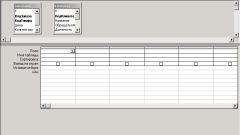Accounting policy is a document regulating the order of conducting accounting and tax accounting in the organization, a set of rules of reflection in the accounts of assets, income, expenses, other transactions, drafting and reporting. Its formation is governed by PBU 1/2008 "Accounting policy of organization".
Companies have the right to develop accounting policy independently taking into account features of activity, sectors of the economy, applicable tax regimes, and other factors. However, they must adhere to uniform methods of accounting: the primary observation, cost measurement, current grouping, the resulting generalization of facts of economic activity.
The accounting policy regulates several groups of questions:
- organizational: roles, responsibilities of accountants to appoint a person responsible for keeping records on individual sites, the determination of analytical registers that will be used in the account;
technical: rules of document circulation, information processing, etc.;
methodological rules and methods of accounting, calculation of taxes, write off expenses, etc.
As a rule, at formation of accounting policy at the same time approved the working plan of accounts, forms of primary documents according to the types of operations, forms of accountability between the departments of the company, the procedure of inventory, methods of valuation of assets and liabilities balance.
Accounting policy is prepared by the chief accountant and approved by the head. It can be presented as a single document, information which is contained in special sections, chapters, articles and orders for the rules and methods of accounting, calculation of each tax, etc.
With account policy, you can bring together accounting and tax accounting. For this formulation we need to apply the same methods of writing off of cost of expense recognition, depreciation, useful lives of fixed assets etc.
In addition, accounting policy allows the company to determine accounting policies in cases not regulated by law, and approve samples of documents for which no unified forms.









